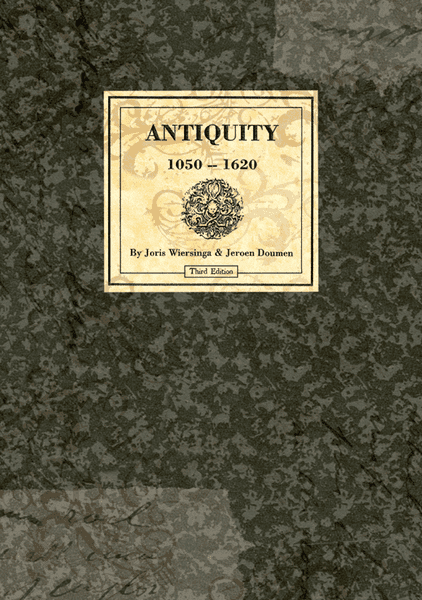Antiquity (2004) Board Game
Antiquity is a board game that was released in 2004 and designed by Ynze Moedt. It falls under the categories of city building, civilization, economic, environmental, and medieval. The game is known for its strategic depth and challenging gameplay, where players must build and develop their civilizations while also managing limited resources and dealing with various environmental hazards.
Game Components of Antiquity
How To Setup Antiquity
To set up **Antiquity**, each player starts with one city on the map and a 7×7 grid off the board. The game board is composed of hexes representing different terrains, and each player has a set of initial buildings and resources. Players choose a patron saint, which determines their victory condition. The game board is expanded with terrain tiles, and each player begins with a few houses and basic resources.
Gameplay Mechanics and Game Objective
Mechanics
Game Objective
– Building all 20 houses.
– Constructing all available buildings in the game.
– Having 3 each of all food and luxury resource types.
– Spreading your zone of control to completely cover another player’s zone.
– Specific objectives based on the patron saint chosen.
Player Experience
Playing **Antiquity** is a complex and challenging experience. The game is characterized by its brutal and crushing mechanics, including famine and pollution, which players must manage to survive. Players must balance resource gathering, building construction, and expansion while dealing with the increasing difficulties of famine and pollution. The game requires strategic planning and resource management, making it a true test of player skills.
Pros
Cons
Personal Thoughts on Antiquity
**Antiquity** is for experienced gamers who enjoy complex strategy and engine-building games. It is particularly suited for those who have played civilization-building games or complex economic games. The game’s challenging mechanics and lack of catch-up mechanics make it less appealing for casual players or those who prefer lighter games. However, for gamers looking for a deep and rewarding experience, **Antiquity** offers a unique and engaging challenge.
We are supported by our audience. When you purchase through links on our site, we may earn an affiliate commission, at no extra cost for you. Learn more.

